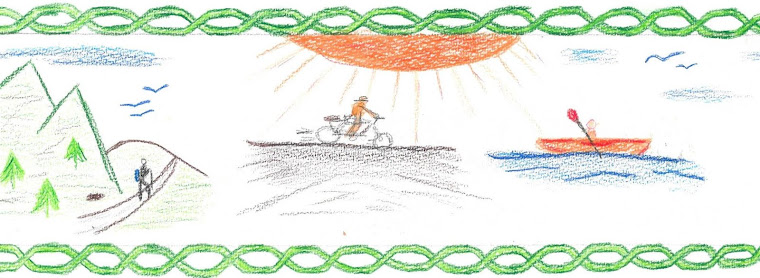Lectionary
Ruminations 2.0 is a revised continuation of Lectionary Ruminations. Focusing on The Revised Common Lectionary Readings for the upcoming Sunday from New Revised
Standard Version (NRSV) of the Bible, Lectionary
Ruminations 2.0 draws on nearly thirty years of pastoral experience. Believing that the questions we ask are often
more important than any answers we find, without overreliance on commentaries I
intend with comments and questions to encourage reflection and rumination for
readers preparing to teach, preach, or hear the Word. Reader comments are
invited and encouraged. All lectionary
links are to the via the PC(USA) Devotions and
Readings website.
18:15 Who is speaking?
18:16 What and where is
Horeb? What happened there? Is there any other reference to the people saying
this?
18:17 Is the LORD in the
habit of claiming people are right or wrong in what they say?
18:18 Is this simply a
restatement of 18:15?
18:19 What does it mean to
be held accountable by God? Is there anyone God does not hold accountable?
18:20 What other gods? Do we ever presume to speak in God’s name
when God has not commanded us to speak?
111:1 Do some Christians
praise the LORD more with the mind than the heart? Who are the upright? What is
the congregation?
111:2 What are the works of
the Lord? How does one study them?
111:3 How do we experience
the majesty and honor of God’s works?
111:4 What wonderful deeds
might the Psalmist have in mind?
111:5 In this context, what
does it mean to fear the LORD?
111:6 What is the power of
God’s works? What is the heritage of the nations?
111:7 God has hands? What
are the works of God’s hands? What are God’s precepts? What does it mean that
they are trustworthy? Are the works of God’s hands the same thing as God’s
precepts?
111:8 What are established
forever and ever, the works of God’s hands or God’s precepts? How are they
performed with faithfulness and uprightness?
111:9 What is meant by redemption and how did God
send it? What is the difference between
“Holy” and “awesome”? What is God’s name? Is God’s name so awesome and Holy
that Christians should not pronounce it?
111:10 See my question
regarding 111:5. All who practice what, fear or wisdom? What is meant by
“wisdom”?
8:1 When was the last time
you were concerned about food offered to an idol? Is there any equivalent issue
or similar concern in our culture? What is meant by knowledge?
8:2 I think Socrates would
have liked this verse?
8:3 Why am I thinking of Bishop
Berkeley? What is preferable, to know God or to be known by God?
8:4 After all he has
written about knowledge, how can Paul claim to know that “no idol in the world
really exists” and that “there is no God but one:?
8:5 Who or what are these “so-called”
gods and do they exist or not?
8:6 Note the “from whom”
and “through whom”? What is Paul saying?
8:4-6 What is the essence
of Paul’s argument about idols, gods and God? Does this have any bearing on how
we approach or engage in interfaith relations?
8:7 what is the relation
between knowledge and conscience?
8:8 How might this verse
impact our understanding of the spiritual discipline of fasting?
8:9 I understand how one
person’s liberty can be another person’s stumbling block, but what about
someone’s stumbling block becoming an impediment to the exercise of another
person’s liberty?
8:10 In other words, don’t
let people of week conscious see you engaging in adiaphorous activities?
8:11 How long shall weak
believers be permitted to remain weak? Are not all believers called to grow and
mature from a weak faith to a strong faith?
8:12 I would like to ask
Paul what to do when people of weak faith wound my conscious by judging others
when they should not be judged.
8:13 But the issue was not
eating meat, rather food sacrificed to idols.
8:7-13 What is more pastoral when it comes to Bible
study and preaching, to dumb things down for those whose conscious is weak, or
to help people grow in faith and understanding by asking tough questions, employing
recent scholarship, and suggesting
other interpretations of Scripture they
may not even be familiar with?
1:21 Who went to Capernaum?
Where were they before they went to Capernaum? What do you know about Capernaum?
1:22 When was the last time
you were astounded by someone’s teaching?
What does it mean to teach with authority? I’m glad I am not a scribe.
1:23 How convenient!
1:24 What is the irony
here?
1:25 Why would Jesus rebuke
this truth speaking spirit, even if it was an unclean spirit?
1:27 Indeed, what is this?
What and where are today’s unclean spirits?
1:28 When was the last time
you associated the word “fame” with Jesus?
ADDENDUM
